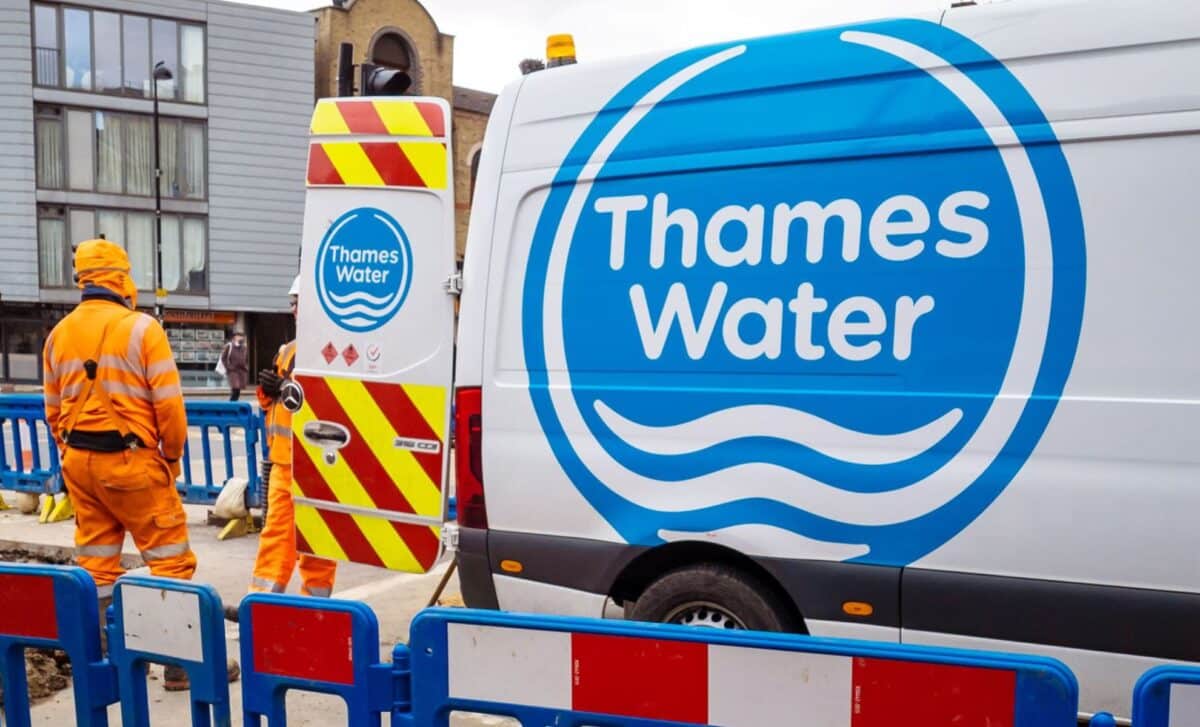Thames Water is considering raising bills by up to £627 per year to restore its leaking network after committing to invest up to £3 billion extra over the next five years.
Thames Water Invests to Tackle Sewage, Potentially Raising Bills to £627
The struggling water company announced on Monday that it had revised its spending estimates for 2025 to 2030 following conversations with the sector’s regulator, Ofwat.
In October, it presented its business strategy, also known as a PR24, to Ofwat, promising to spend £18.7 billion over the period and boost bills by 40% to £610, excluding inflation, which would result in a 56% increase.
The corporation has now said that it will invest a further £1.1 billion (a total of £19.8 billion) to resolve environmental concerns over sewage dumping in this industry.
Thames stated that it may invest an additional £1.9 billion, for a total of £21.7 billion over the term, depending on the availability of manpower in its supply chain, which it would agree on annually with Ofwat. If this happens, Thames’s 16 million customers’ bills will be £627 by 2030, a 44% rise (excluding inflation).
Thames did not clarify what the £1.1 billion would be spent on. According to industry sources, the majority of the money will most likely be spent guaranteeing that the corporation can meet new statutory environmental criteria imposed by the Department for Environment, Food, and Rural Affairs.
Financial Scrutiny and Potential Renationalization Looms Over Thames Water
Thames is under close examination amid worries over the stability of its finances and inquiries over whether its shareholders are ready to pay upfront for its investments, before they are obtained from consumers through bills.
The government is developing plans for renationalization in the event that the debt-laden corporation goes bankrupt. The Guardian reported last week that Whitehall’s contingency preparations for renationalisation may entail adding the majority of its £15.6 billion debt to the public purse, with certain lenders to its core operating firm possibly losing as much as 40 percent of their money.
Thames stated on Monday that it was able to increase spending without boosting bills above the original predictions “due to a rebalancing of operating and capital expenditures”.
The Thames Water chief executive, Chris Weston, stated: “Our business plan focuses on our customers’ priorities. As part of the usual ongoing discussions relating to PR24, we’ve now updated it to deliver more projects that will benefit the environment.
“We will continue to discuss this with our regulators and stakeholders.”
Shareholders stated last month that they were unlikely to put up the guaranteed £500 million while the impasse between Thames and Ofwat remained.
Thames Water Faces Criticism Amid Financial Struggles
The Guardian reported last week that Thames was looking into issuing further debt to help pay its plans, adding to its £15.6 billion debt pile.
Mike Keil, CEO of the Consumer Council for Water, stated: “On the surface the proposal for more investment from Thames Water is a positive step for its customers that have endured some of the worst customer service in the sector.
“We should not lose sight of the fact that only 16% of its customers thought the company’s proposed bill rises in its five-year plan were affordable. This announcement appears to do nothing to alleviate the concerns of those who are already struggling to pay.”
Sarah Olney, the Liberal Democrat treasury spokesman, stated: The Liberal Democrat treasury spokesperson, Sarah Olney, said: “It would be an absolute disgrace if customers are forced to foot the bill for Thames Water’s shambolic failings. Ofwat cannot allow these bill hikes to go ahead.”
Ofwat will issue a provisional decision on Thames’ business plan and those of its rivals on June 12th, with final conclusions published in December.
In its submission to Ofwat, the company stated that it was discussing its “green economy recovery” strategy (GER) with the regulator. The ailing scheme, developed during the epidemic, was supposed to allow Thames to increase bills by £72 million to support a smart metre deployment in the Thames Valley.
The business stated that extreme weather in 2022 had reduced the “achievability” of meeting its aims, and that conversations with Ofwat would “determine if we can proceed with the GER programme”.









